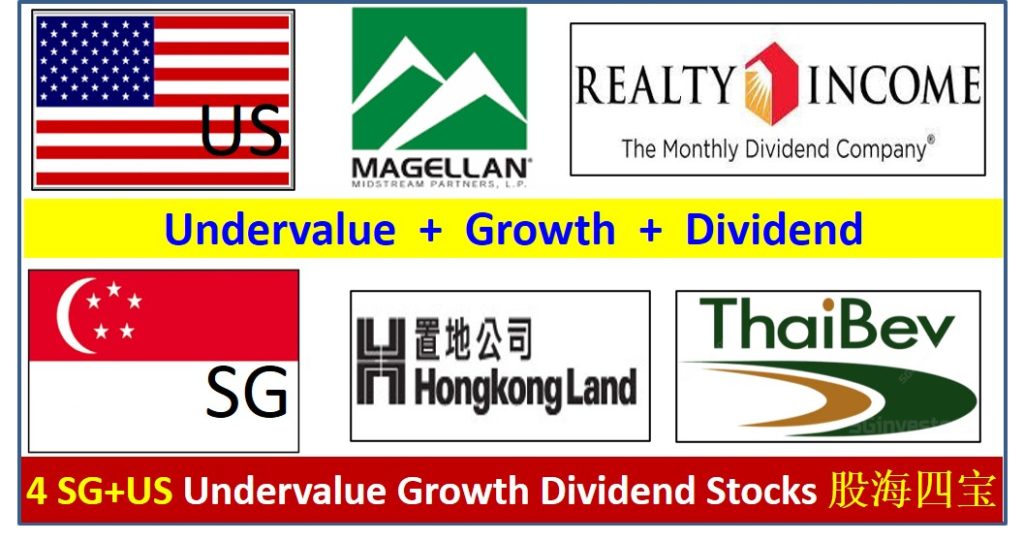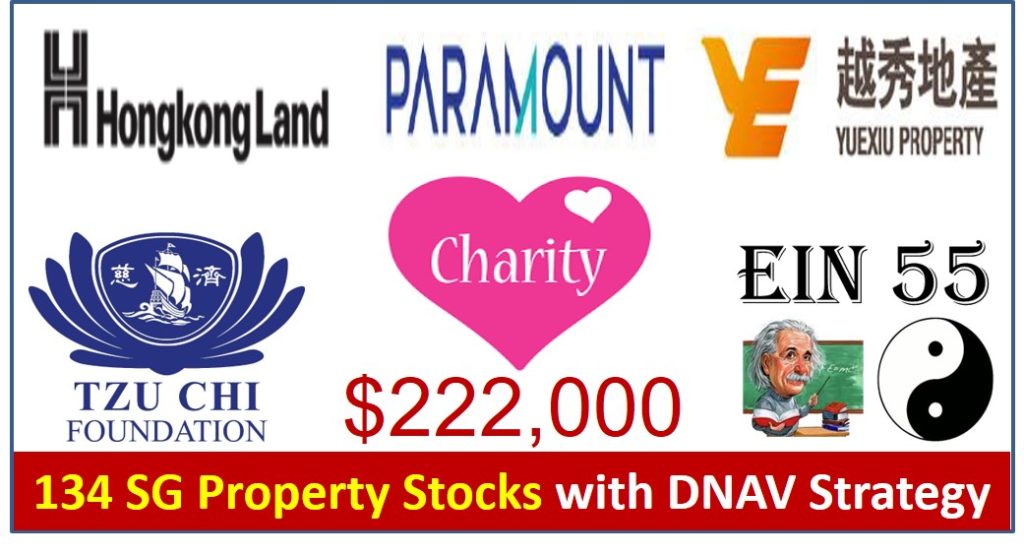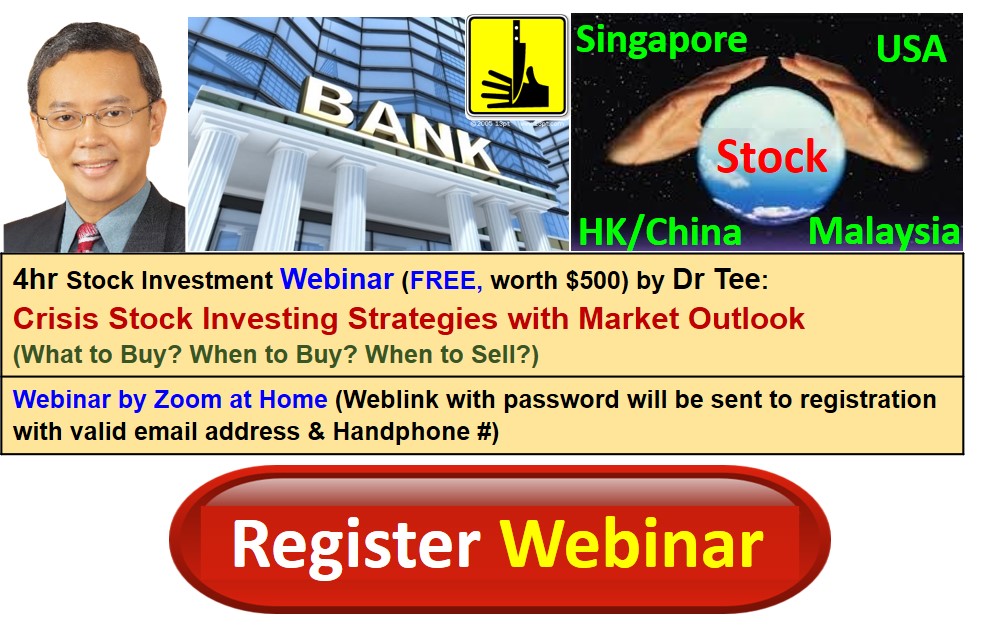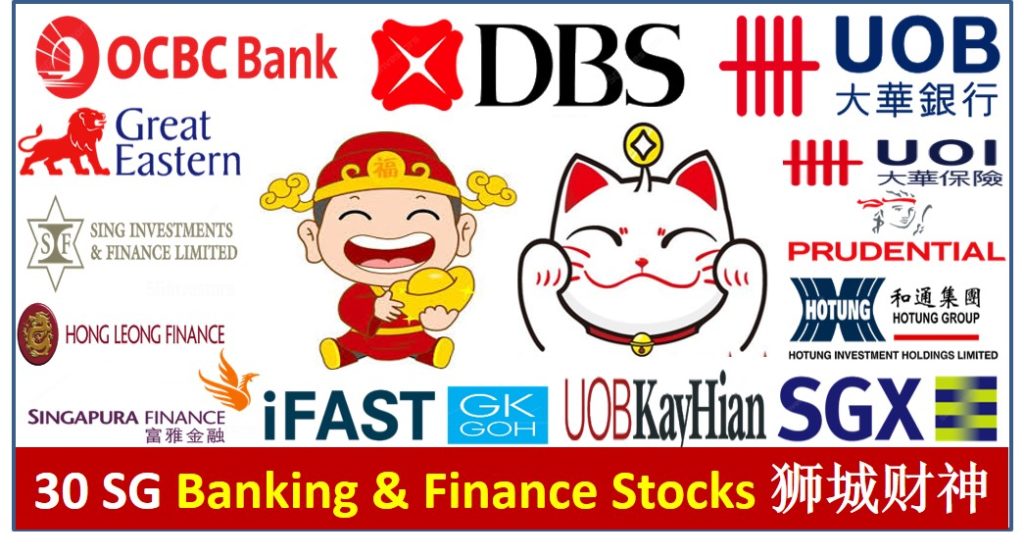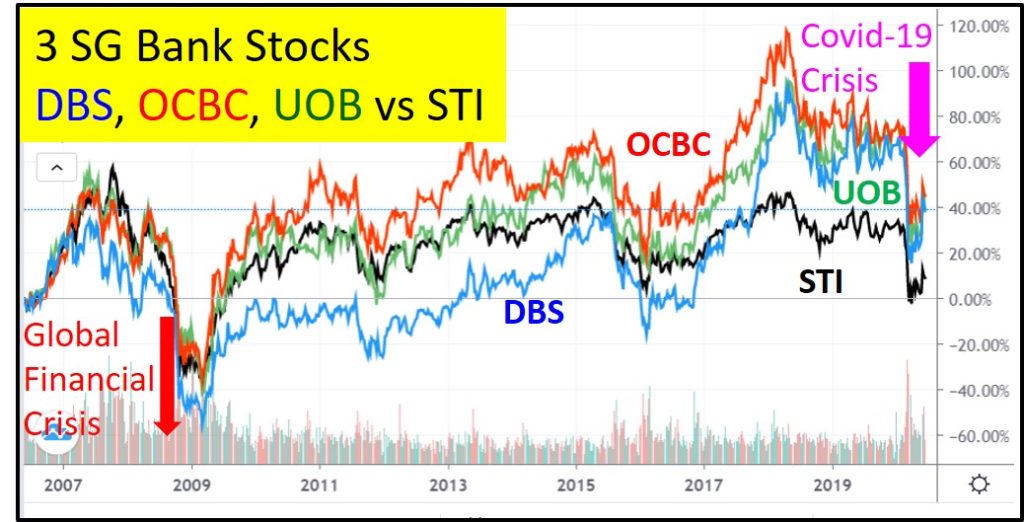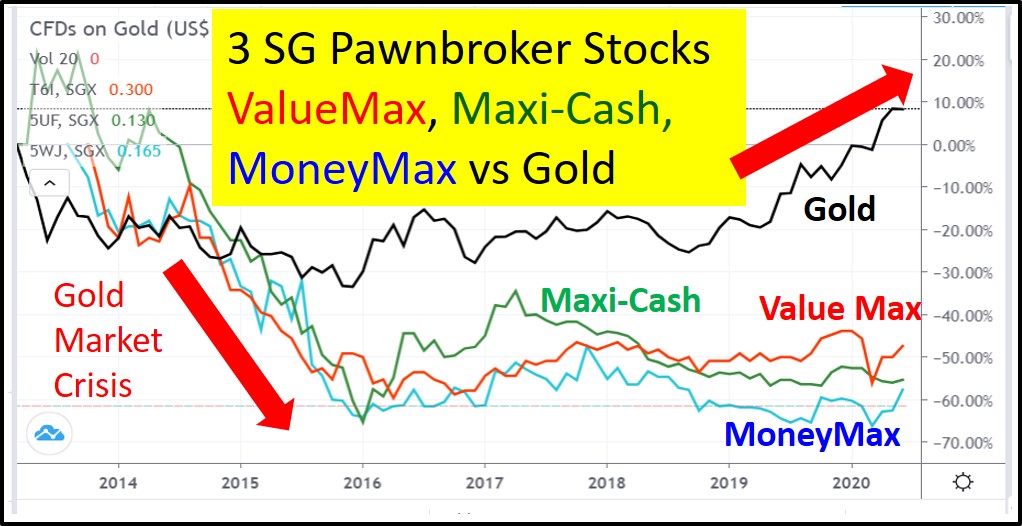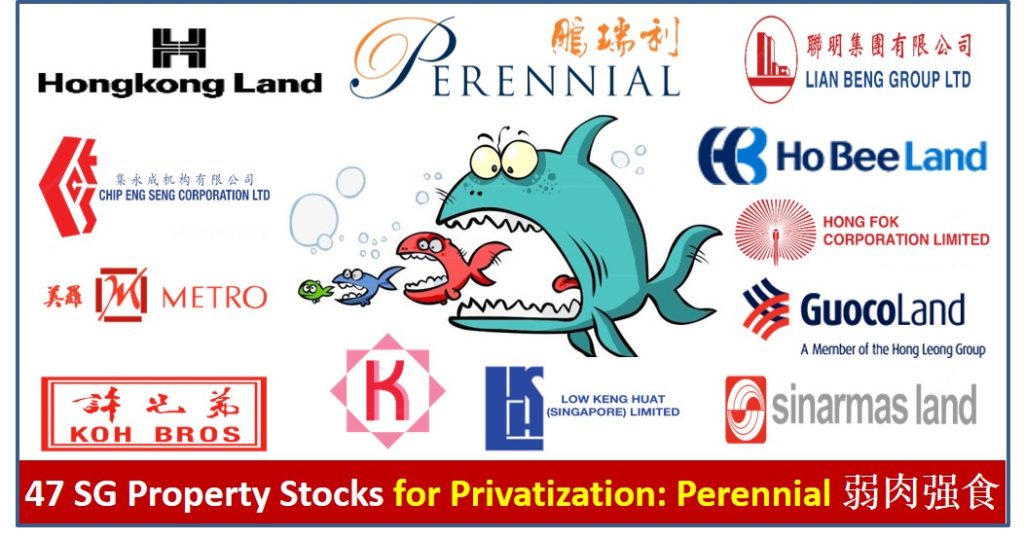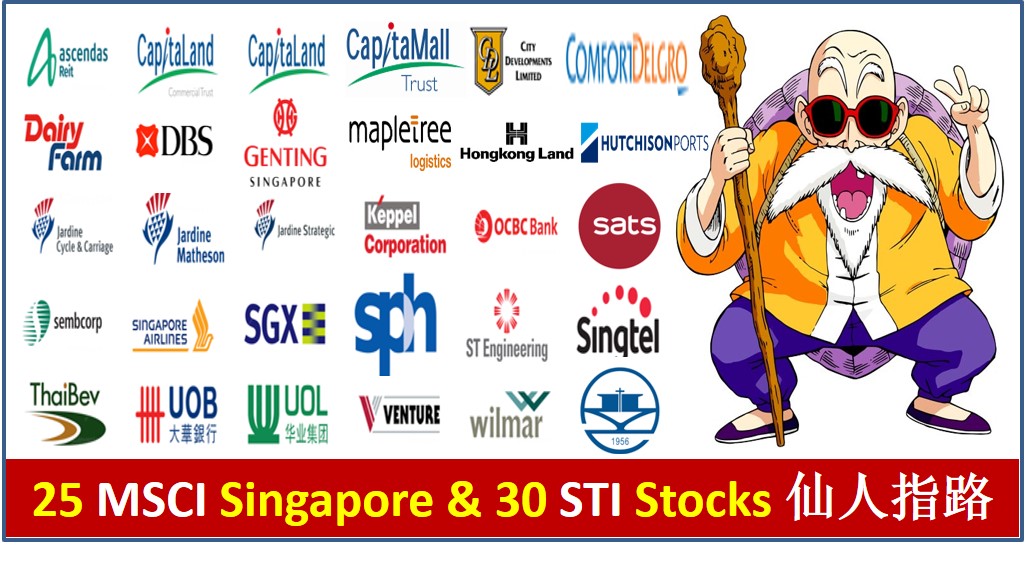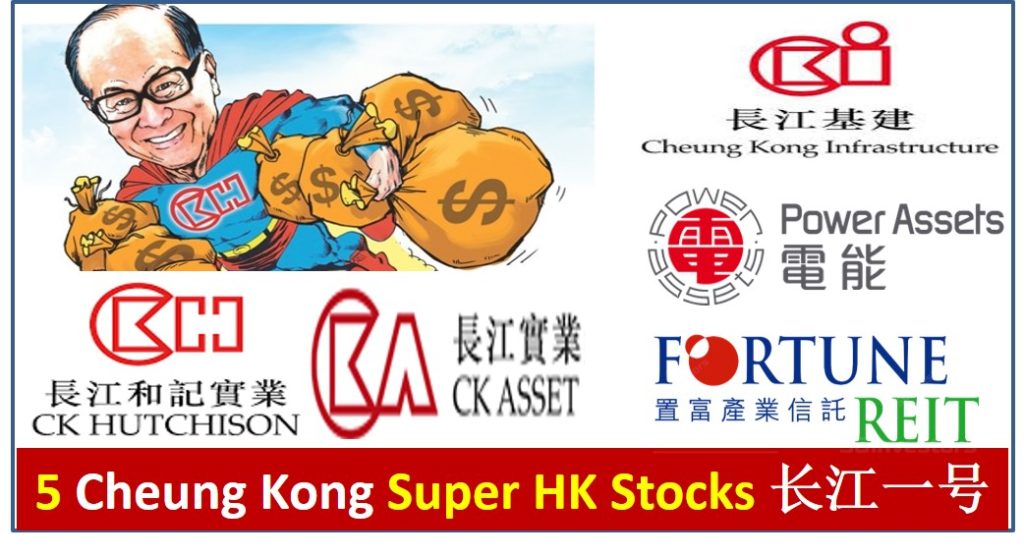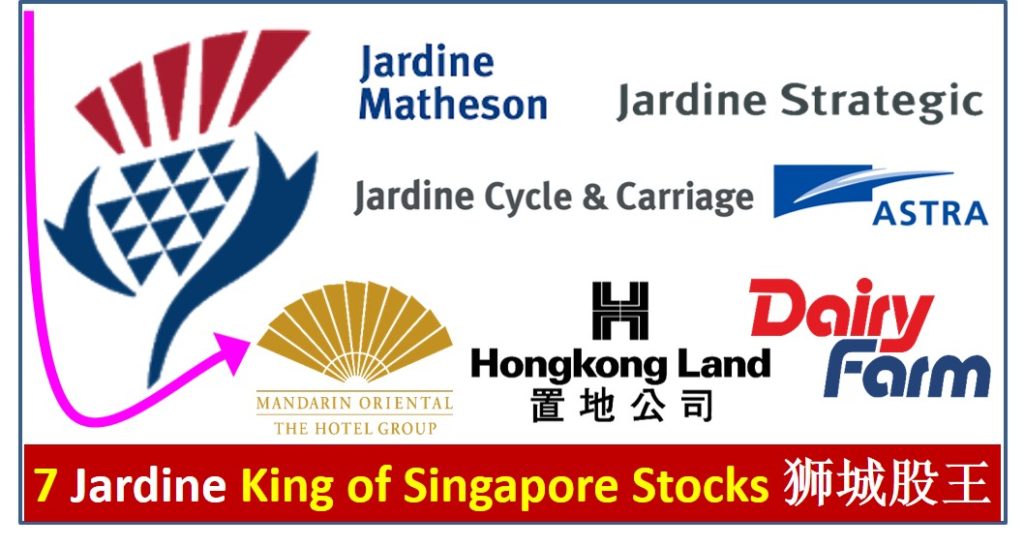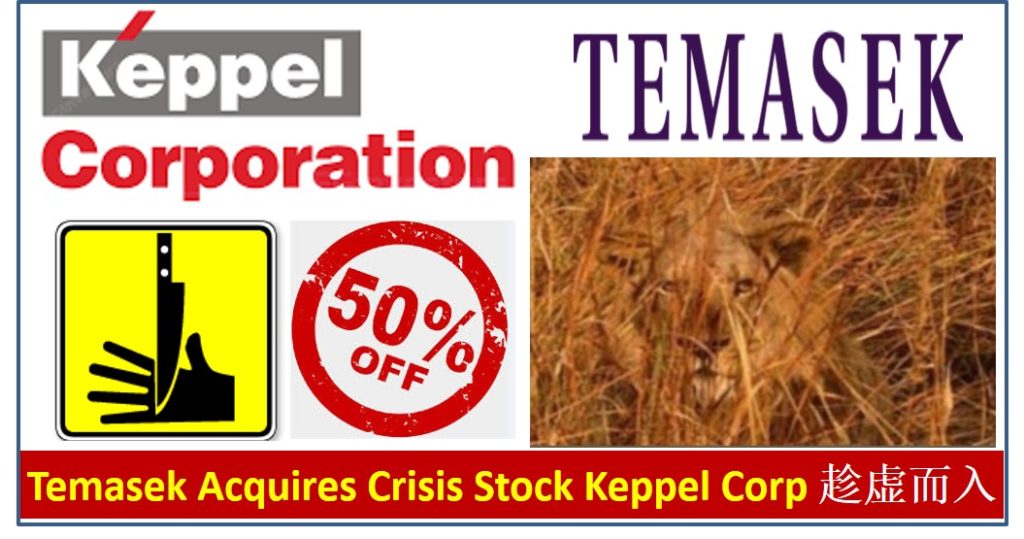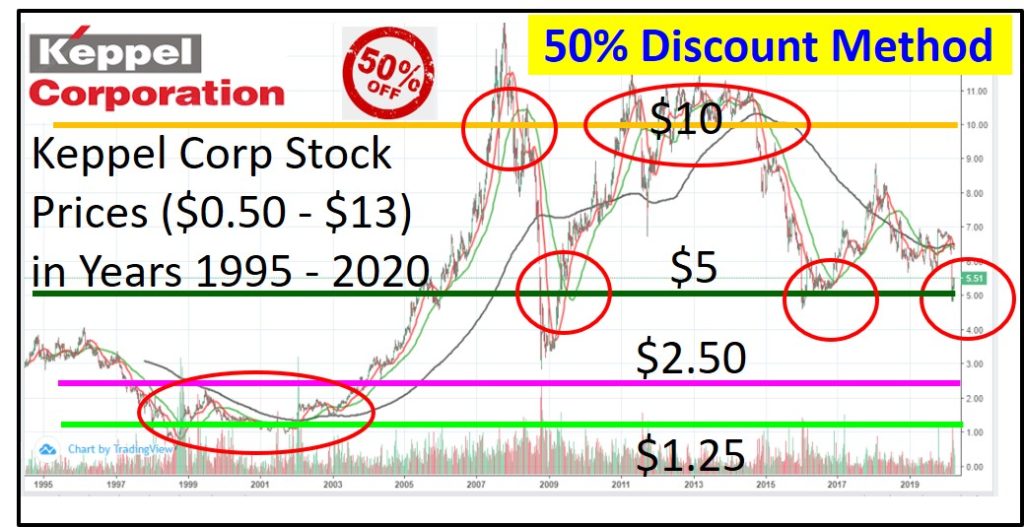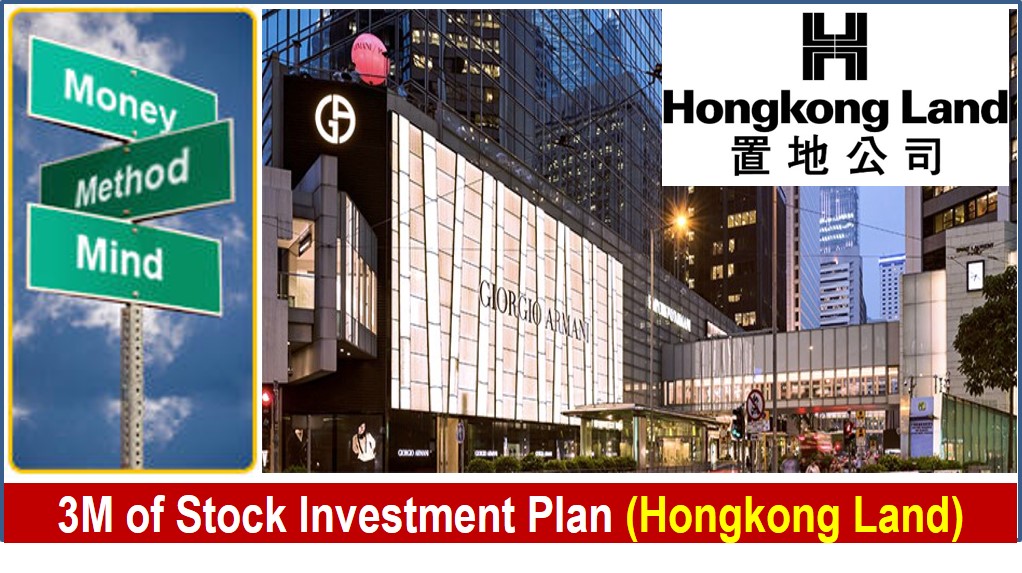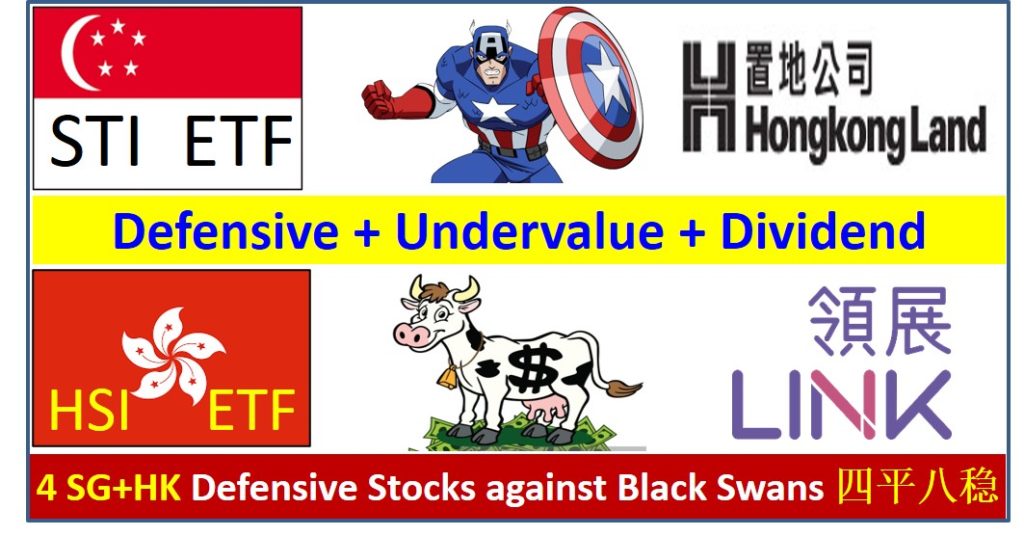
In this Dr Tee 2hr video education (4 Defensive Undervalue Dividend Stocks), you will learn:
1) Interactive Impacts of 5 Potential Black Swans
– COVID19, High Inflation, Interest Rate Hike, Supply Chain Disruption, Russia-Ukraine War
2) Singapore and Hong Kong Stock Market Outlook
– Short term, medium term & long term
3) 4 Singapore and Hong Kong Defensive-Undervalue-Dividend Stocks:
– Singapore Index Fund: STI ETF (SGX: ES3 & G3B)
– Hong Kong Index Fund: HSI ETF (HKEX: 2800 & 2833)
– Singapore Property Giant Stock: Hongkong Land (SGX: H78)
– Hong Kong Giant Reit: Link Reit (HKEX: 0823)
4) Defensive Investing Strategies with Low Optimism Giant Stocks
– Kiasu Personality (Average Down)
– Kiasi Personality (Average Up)
5) Bonus / Q&A
– Jardine Cycle & Carriage (SGX: C07)
– Alibaba (HKEX: 9988 / NYSE: Baba)
– Impact of interest rates (HDB / Banks) on Property Market
Here is Dr Tee Free 2-hr Video Course. Enjoy and give your comments for improvement. You may subscribe to Dr Tee Youtube channel (Ein Tee) for future Dr Tee video talks.
Dr Tee Video Course: https://youtu.be/U2JPD68YR94
Past readers could have profited with over 50% rally in share price if have taken actions during pandemic on similar giant stocks at low optimism level. No one could change the past but you could still change the future if taking action to learn now!
Investing with 30 STI Index Stocks (including Hongkong Land) is a defensive strategy, indirectly diversifying the risks among 30 large size businesses in Singapore.
Similarly, investing with 66 HSI Index Stocks (including Link Reit) is a defensive strategy (with additional protection of low optimism Hang Seng Index, leveraging on pandemic recovery and stimulus plans in China), indirectly diversifying the risks among 66 large size businesses in China / Hong Kong:
CKH HOLDINGS (HKEX: 1), CLP HOLDINGS (HKEX: 2), HK & CHINA GAS (HKEX: 3), HSBC HOLDINGS (HKEX: 5), POWER ASSETS (HKEX: 6), HANG SENG BANK (HKEX: 11), HENDERSON LAND (HKEX: 12), SHK PPT (HKEX: 16), NEW WORLD DEV (HKEX: 17), GALAXY ENT (HKEX: 27), MTR CORPORATION (HKEX: 66), HANG LUNG PPT (HKEX: 101), GEELY AUTO (HKEX: 175), ALI HEALTH (HKEX: 241), CITIC (HKEX: 267), WH GROUP (HKEX: 288), CHINA RES BEER (HKEX: 291), OOIL (HKEX: 316), SINOPEC CORP (HKEX: 386), HKEX (HKEX: 388), TECHTRONIC IND (HKEX: 669), CHINA OVERSEAS (HKEX: 688), TENCENT (HKEX: 700), CHINA UNICOM (HKEX: 762), LINK REIT (HKEX: 823), PETROCHINA (HKEX: 857), XINYI GLASS (HKEX: 868), ZHONGSHENG HLDG (HKEX: 881), CNOOC (HKEX: 883), CCB (HKEX: 939), CHINA MOBILE (HKEX: 941), LONGFOR GROUP (HKEX: 960), XINYI SOLAR (HKEX: 968), SMIC (HKEX: 981), LENOVO GROUP (HKEX: 992), CKI HOLDINGS (HKEX: 1038), HENGAN INT’L (HKEX: 1044), CSPC PHARMA (HKEX: 1093), CHINA RES LAND (HKEX: 1109), CK ASSET (HKEX: 1113), SINO BIOPHARM (HKEX: 1177), BYD COMPANY (HKEX: 1211), AIA (HKEX: 1299), CHINAHONGQIAO (HKEX: 1378), ICBC (HKEX: 1398), XIAOMI – W (HKEX: 1810), BUD APAC (HKEX: 1876), SANDS CHINA LTD (HKEX: 1928), WHARF REIC (HKEX: 1997), COUNTRY GARDEN (HKEX: 2007), ANTA SPORTS (HKEX: 2020), WUXI BIO (HKEX: 2269), SHENZHOU INTL (HKEX: 2313), PING AN (HKEX: 2318), MENGNIU DAIRY (HKEX: 2319), LI NING (HKEX: 2331), SUNNY OPTICAL (HKEX: 2382), BOC HONG KONG (HKEX: 2388), CHINA LIFE (HKEX: 2628), ENN ENERGY (HKEX: 2688), MEITUAN – W (HKEX: 3690), CM BANK (HKEX: 3968), BANK OF CHINA (HKEX: 3988), CG SERVICES (HKEX: 6098), HAIDILAO (HKEX: 6862), JD – SW (HKEX: 9618), NONGFU SPRING (HKEX: 9633), BABA – SW (HKEX: 9988), NTES – S (HKEX: 9999).
===================================
There are over 2000 giant stocks in the world based on Dr Tee criteria, choice of 10 Dream Team giant stocks have to align with one’s unique personality, eg. for shorter term trading (eg. momentum or swing trading) or longer term investing (cyclic investing, undervalue investing or growth investing). Readers should not just “copy and paste” any stock (What to Buy, When to Buy/Sell) as successful action taking requires deeper consideration (LOFTP strategies – Level / Optimism / Fundamental / Technical / Personal Analysis) which you could learn further from Dr Tee Free 4-hr Webinar.
Drop by Dr Tee free 4hr webinar (learning at comfort of home with Zoom) to learn how to position in global giant stocks during COVID-19 stock crisis with 10 unique stock investing strategies, knowing What to Buy, When to Buy/Sell.
Zoom will be started 30 min before event, bonus talk (Q&A on any investment topics from readers) for early birds. There are many topics we will cover in this 4hr webinar, Dr Tee can have more time for Q&A if you could stay later after the webinar, you could ask on any global and local stocks including but not limited to 30 STI component stocks:
Ascendas Reit (SGX: A17U), CapitaLand (SGX: C31), CapitaLand Integrated Commercial Trust (SGX: C38U), City Development (SGX: C09), ComfortDelGro (SGX: C52), Dairy Farm International (SGX: D01), DBS Bank (SGX: D05), Frasers Logistics & Commercial Trust (SGX: BUOU), Genting Singapore (SGX: G13), Hongkong Land (SGX: H78), Jardine Cycle & Carriage (SGX: C07), Jardine Matheson Holdings JMH (SGX: J36), Keppel Corp (SGX: BN4), Keppel DC Reit (SGX: AJBU), Mapletree Commercial Trust (SGX: N2IU), Mapletree Industrial Trust (SGX: ME8U), Mapletree Logistics Trust (SGX: M44U), OCBC Bank (SGX: O39), SATS (SGX: S58), Sembcorp Industries (SGX: U96), Singapore Airlines (SGX: C6L), Singapore Exchange (SGX: S68), Singtel (SGX: Z74), ST Engineering (SGX: S63), Thai Beverage (SGX: Y92), UOB Bank (SGX: U11), UOL (SGX: U14), Venture Corporation (SGX: V03), Wilmar International (SGX: F34), YZJ Shipbldg SGD (SGX: BS6).
Dr Tee will cover over 20 case studies, Singapore giant stocks, eg. CapitaLand Integrated Commercial Trust (SGX: C38U), Singapore Exchange (SGX: S68), Keppel Corp (SGX: BN4), Top Glove (SGX: BVA), Jardine Matheson Holdings JMH (SGX: J36), Vicom (SGX: WJP) and many others, Malaysia giant stocks, Hong Kong giant stocks and US giant stocks, both long term investing and short term trading.
There are limited tickets left for this 4hr free webinar, please ensure 100% you could join when register: www.ein55.com
View quick preview video below, Dr Tee will introduce 10 key stock investment strategies (股票投资十招) to be learned in 4hr free stock webinar:
Register Here (Dr Tee Free 4hr Stock Webinar): www.ein55.com

